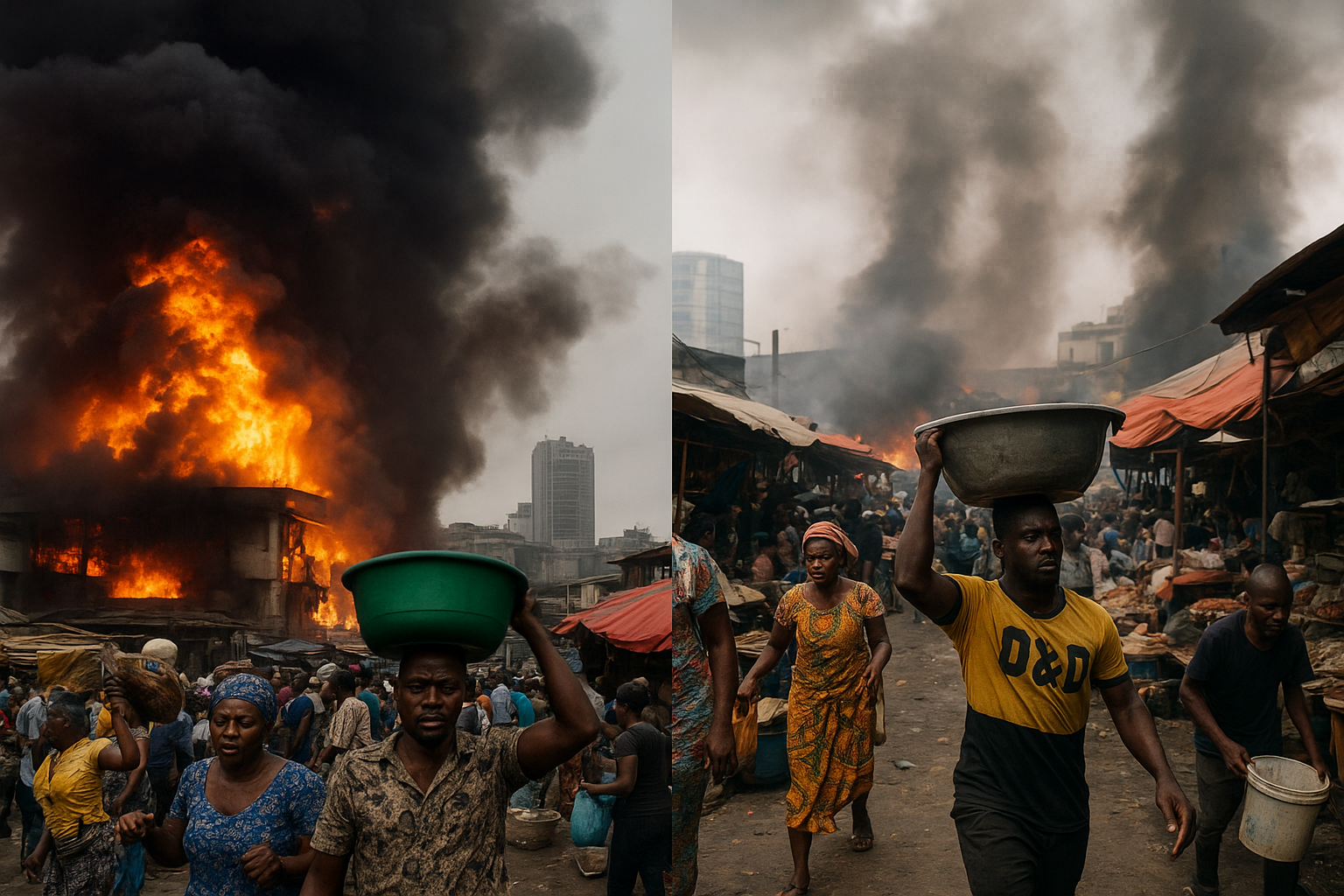By Deborah Akwa
Copyright pulse

Lagos has recorded two major fire incidents in the last week alone. First, it was the Afriland Tower, which caught fire on September 16, 2025. A few hours later on the same day, another inferno broke out at a plaza. The two fire accidents occurred on the Island, the area of the state notorious for frequent marketplace fire emergencies.
From Balogun to Oyingbo market, these incidents have become a common occurrence. Every fire incident typically leaves a lasting memory of sorrow, tears, and financial losses for business owners, having a broader negative impact on the country’s struggling economy.
Despite the huge losses, victims are often left helpless due to a combination of factors, including a lack of a government-backed compensation framework to alleviate the pain of fire outbreaks.
ALSO READ: 7 urgent actions to take if there is fire outbreak
While compensation packages may provide some relief to fire victims, there is a need to shed light on the root causes of this menace in Nigeria’s commercial capital to find a preventive solution, which prompts the important question: why do Lagos markets continue to catch fire?
Why do Lagos markets keep burning?
1. Overcrowded and poorly built buildings
Most Lagos markets are built like a maze, and even as a Lagosian going for market runs feels like an ultimate search and when you’re done walking in circles many times, you feel so exhausted because of how the stalls, shops, and makeshift structures are squeezed together with little or no escape route in the case of an emergency. Additionally, the poorly planned buildings, coupled with a narrow road network leading to these markets, make it difficult for fire trucks to arrive on time for prompt emergency intervention.
2. Faulty Electrical Connections
Many shops and stalls run their electrical connections with tangled wires, multiple extensions, and outdated wiring. With faulty electrical connections in almost every shop, just one spark is all it takes to set an entire building on fire. Sadly, routine electrical checks by market community heads or groups are almost non-existent.
EXPLORE: Fire destroys building materials plaza in Nnewi
3. Lack of Fire Safety Equipment
Try to picture the last time you visited a Lagos market. Did you see any fire extinguishers, fire alarms or water hydrants? The sad answer is No. Many Lagos markets lack working fire extinguishers, fire alarms, or water hydrants; if they exist, they are scarce. In most cases, when fire starts, traders can only shout and scream for help and watch helplessly until it spreads uncontrollably.
However, on the other hand, if this equipment is available, it can be used to subdue the fire and prevent it from escalating, causing minimal damage to properties while waiting for the firefighters to arrive.
4. Traders’ Risky Practices
Some shop owners store petrol for generators inside or close to their goods, and leave appliances plugged in overnight. Some even cook in their stalls. These practices can turn small mistakes into major disasters, causing millions of properties to burn down or resulting in loss of lives.
ALSO READ: Tragedy as Sokoto SSG loses daughter, 3 grandchildren in fire outbreak
5. Slow Emergency Response
Although fire service personnel try their best, poor access roads, blocked routes, and inadequate equipment often delay their response to fire incidents. Due to these factors, by the time they eventually arrive, the fire is already out of control and will take a longer period of time before it’s under control.
6. No Insurance Protection
Thousands of businesses lack insurance plans; if a fire outbreak occurs today, their business could be lost in minutes. In simple terms, what this means is that once a shop burns down, years of savings and investment vanish into thin air just like that.
What are the necessary steps?
The government must enforce strict safety standards in all Lagos markets and throughout the country
Business owners and traders need regular fire safety training, which can be led and held within the communities.
EXPLORE: Fire destroys millions-worth goods at popular Lagos market
Fire hydrants, extinguishers, and other fire safety equipment, along with accessible exit routes, should be mandatory in all marketplaces
Business owners and traders should explore affordable insurance plans to protect their investments and savings.



